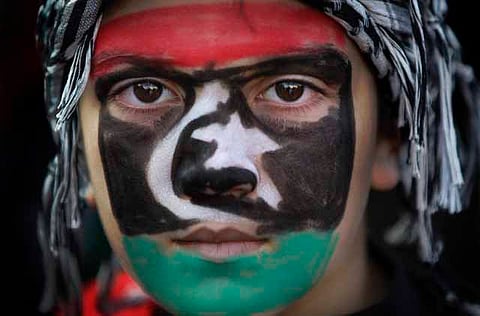Libya's freedom and integrity inseparable
The main enforcers of the UN resolution may neither be able nor interested

Foreign military interventions seldom run a smooth course; they have been particularly messy, if not counterproductive, in the vast swathe of lands stretching from the Maghreb to Indonesia.
In recent times, the Russians, the Americans and West Europeans have found that the constant interplay of timeless social structures and a readiness to sacrifice life and property in what often becomes a religious struggle produces totally unforeseen crises. The existing order collapses but the challenge of fresh state-building remains unanswered even after decades.
In the Libyan case, there was some hope that outside military intervention would bring a fast denouement either because it would quickly prevail or because Muammar Gaddafi would decide that the Libyan people should be spared further violence.
The international community was anxious to maintain, at least in terms of public diplomacy, that it was acting only in the name of what has come to be called ‘Responsibility to Protect'. This concept has figured prominently in the evolution of international humanitarian law though it is also seen to conflict with provisions of the UN Charter about non-interference in the internal affairs of member states.
In Libya's case, the United Nations Security Council quickly adopted Resolution 1973 enabling the coalition to take all necessary measures to protect civilians though important countries like Russia, China, India and Brazil decided to abstain.
Notwithstanding their significant reservations, it was widely expected that the awesome air power of the United States and other participating states would speedily neutralise the capacity of the Libyan regime to hurt the people and create conditions for a relatively bloodless transition to a new democratic order.
Motives under suspicion
By now, doubts about the success of the intended script are beginning to cloud the horizon. First, there is growing criticism that aerial bombardment has exceeded the limit set forth in the UN resolution and has assumed a partisan role in a civil war. This view is tantamount to re-opening the question of legitimacy.
Second, the motives of France and United Kingdom are becoming increasingly suspect in terms of the politics of oil and conversion of Libya into a lucrative market for arms that a post-Gaddafi government would urgently need to build anew the military and security strength of the state now hopelessly degraded by missiles and precision bombing.
Third, the military conflict on the ground has entered a phase in which civilians would come to harm anyway. With air support from the coalition and fresh arms supplies, the rebels recovered many of the coastal cities but only to lose them to pro-Gaddafi forces again.
It seems that Gaddafi was able to use armour and artillery to storm into Misrata, the rebel outpost in the west. Depending upon the intensity of the air attacks, this pattern of advances and retreats by insufficient forces of belligerents may repeat itself, defeating the very purpose of the UN resolution.
Third, neither side is able to formulate a political programme to end the conflict. Gaddafi has no option but to wage a desperate war unless his few close associates who have headed for London, Cairo and Damascus in confusing circumstances can negotiate some immunity for him.
The main enforcers of the UN resolution may neither be able nor interested enough to plan a better future for Libya. The country could fragment de facto into erstwhile Tripolitania, Cyrenaica and Fezzan. Worse still, its 140 tribes, big and small, may end up in fiefdoms announcing a failed state.
This would be a great setback to the Arab nation. The youth that has acted as the vanguard of the ‘Arab Spring' aims at a better assertion of Arab identity and not its negation through conflict and chaos. The full story of how and why the Libyan demonstrations of February 17 turned into a civil war so quickly has not been told as yet.
Tripoli's impetuous decision to use excessive force to quell them is obviously one of the main causes for this political debacle. The greatest challenge today is to end the conflict, ensure Libya's territorial integrity as a unified state and preserve its Arab character.
These objectives would have the best chance of being attained if the Arab world takes ownership of the Libyan crisis and not outsource it completely to the ‘international community'.
Given the global strategic contests, including in the so-called ‘Mediterranean-European Zone', it is a difficult but not an impossible mission for Arab diplomacy. The presence of Qatar and UAE among the states that gave early support to the initiative to protect civilians gives the Arab nations the right to stand up for the integrity of a post-conflict Libya.
The Arab diplomacy has an added leverage in the fact that the United States does not want an open-ended commitment to state-building in Libya and the other two principal western powers — France and UK — are constrained by their resources as well as by the increasing scepticism about their intentions.
Military interventions in Somalia, Afghanistan and Iraq have already compounded regional difficulties; and the latest in an Arab land in North Africa need not degenerate into another quagmire.
Tanvir Ahmad Khan is a former foreign secretary of Pakistan.


